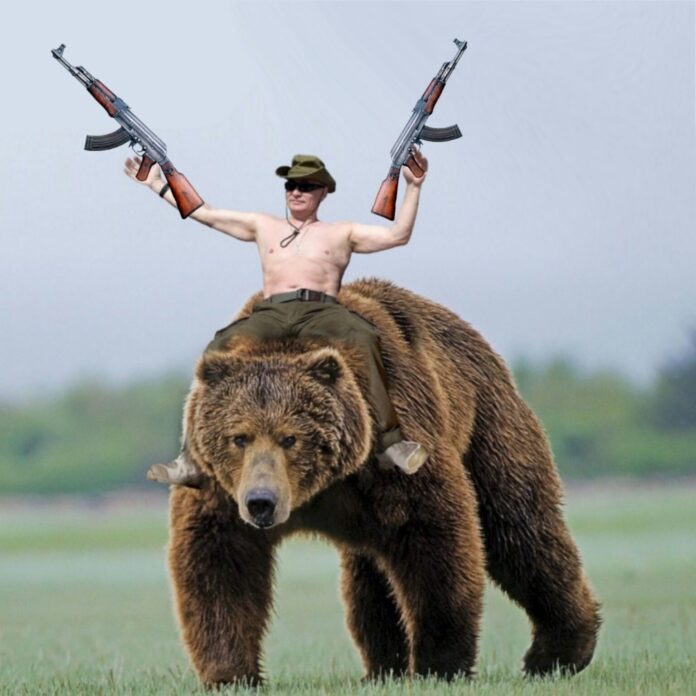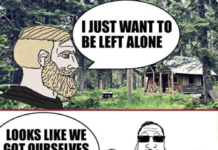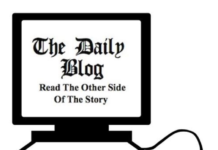The war is Ukraine is reaching a tipping point. Last article we analysed the tactical situation and said that either the Russians will overwhelm the Ukrainians capturing more territory; or the Ukrainians will hold on long enough for international aid from NATO to arrive and may even be able transition to offensive operations. At the moment Russia main effort is still Severodonetsk; and as of today they are not making significant progress, the Ukrainians are in a good position still holding the city and fighting off Russian attempts to outflank the city from Izyum, Lyman or Poposna.
Tactically, the Ukrainians are in a very sound position, in recent days they have counter-attacked and regained ground in Sverodonetsk and don’t look like they will be pushed out before they are ready to leave. If they do evacuate Sverodonetsk, they will withdraw and fight their next defensive battle in Lysyschansk approximately two kilometres west across the Severskyi-Donets River. The Russians need to cross the river to capture Lysyschansk, a city on a commanding piece of high ground overlooking the river. This geography means that the Ukrainians will be able to make the crossing hard and costly for the Russians.
If the Russians do cross the river or advance from Poposna, the Ukrainians can withdraw again to fight a large-scale defensive battle in a well-prepared position located around Sloviansk and Kramatorsk. The only way for the Russians to avoid fighting a series of tough defensive battles like this is for them to outflank the defenders from Izyum or Lyman in the north or Poposna in the south. However, based on their performance to-date operations of this nature are unlikely to be successful. In fact, a small Russian operation to cut Ukrainian supply lines to Lysyschansk was recently defeated by Ukraine.
In the south, a Ukrainian offensive is gaining ground and their forces are advancing between Mykolaiv and Kherson. It is reported that the Ukrainian offensive’s aim is crossing the Dnieper north of Kherson to outflank the city. If this is true, and achieved then it would be a dangerous demonstration of Ukrainian capability and a significant threat to Russian forces in Kherson. Further, the Russians are struggling to secure the territory that the have taken, Ukrainian partisans fighting a guerrilla war and the population tacitly resisting.
However, the tactical battle exists within a wider strategic context and at this level too there are important trends developing some of which impact everybody, everywhere. Strategically, Russia is in a difficult situation the gains that it is making on the ground are relatively small and are a significant reduction of the original objectives. It is likely that at the start of the war they wanted to capture Kiev and force regime change. After being defeated there, they reduced their objectives to capturing Donbas. Currently, it is possible that they may call it quits with the ‘liberation’ of Luhansk Oblast (region). The war is not going well for them ‘on the ground’ and more significantly, at a strategic level they are suffering economically, have driven previously neutral Finland and Sweden to join NATO and have demonstrated that Russia’s vaunted military power is a ‘paper tiger’. Essentially, this war is a strategic loss for Russia and they need a way out.
Throughout the war Putin has used a range of threats and blackmail to try and influence the strategic battle. Examples include threats to deploy nuclear weapons in the Baltic, stopping gas supplies to Bulgaria, Poland and Finland and offers to stop the Russian Navy’s blockade of Odessa if sanctions are lifted. The terrible bombardments of Ukraine’s cities are part of this wider narrative designed to frighten NATO countries and paint the cost of continuing this war as unacceptable.
So far Putin has misjudged the European allies. Calculating that Ukraine would submit and that NATO would ‘look the other way’. Putin is not crazy. He is smart and understands people very well. He knows that most people including leaders of nations fear violence and will avoid it. He also knows that nations manage this fear is by working together to guarantee each other’s safety using ‘collective security’ arrangements. When Putin invaded Ukraine, he was probably very surprised when NATO and the European Union worked together to support the rule of international law. Large and damaging sanctions were imposed on Russian, military aid was provided and the demonstration of NATO’s resolve was a deterrent to military escalation. Putin, could no longer threaten and bully, his rhetoric was ‘called out’. The NATO partnership can easily defeat Russia in a conventional war and the United States nuclear deterrent disincentivises a nuclear escalation. Together NATO is strong. Therefore, breaking NATO’s unity and resolve is Putin’s key strategic objective at this time.
And it is working, last week some NATO countries responded to this behaviour by talking to Putin without Ukraine at the table and making statements supporting a quick end to the war rather than protecting the sovereignty of Ukraine. President Macron of France asked for Europe to provide Putin with a ‘way out’ rather than seeking to ‘humiliate’ him. Wars are expensive in both blood and treasure so some statesmen will convince themselves that Putin is ‘reasonable’, that he can be negotiated with in ‘good faith’ and that peace can be achieved if Ukraine is ‘reasonable’ giving up some territory. The war would be over, the suffering would cease and the world can return to normal.
Unfortunately, we know it won’t. History has demonstrated time and again that the people like Putin are not reasonable and that the only thing they respond to is armed deterrence. Russia’s invasion of Ukraine was a surprise and has the potential to become a defining moment in the history of the 21st century. In the 1990s, Francis Fukuyama told us that ‘history was over’ that liberal democracy had no logical competitor, in War and Anti-War the Tofflers argued that ‘economic and social interdependence made inter-state wars a thing of past’. So in the liberal democracies we shrank our armies and concentrated on building strong economies and developing special forces designed for counter-terrorism and internal security. The tools of conventional war, tanks and artillery slowly started to disappear.
In the states that were not committed to liberal democracy, people like Putin watched and waited. Then in places like Syria, Georgia, Chechnya, Crimea and Ukraine’s east he ‘tested the water’ and when the liberal democracies ‘looked the other way’, calculated that they were weak and unwilling to act. This war is important because it tests the world’s commitment to two concepts:
- Collective security; and
- The international rule of law.
At this time it is important that NATO and the international community remain united in their commitment to protecting the rule of international law. Last week, I watched an interview with General Wesley Clark, an American general who served as Supreme Commander NATO. He thoughtfully articulated the importance of the United Nations, NATO and the international community’s support not for Ukraine but for the principles of international law. The security of small countries is guaranteed by international law and the willingness of other nations to provide collective security (i.e. to be willing to risk soldiers in combat).
So after a 100 days of war, the campaign is now pivoting on a small city in the east of Ukraine and at this stage the biggest risk is that Putin captures Severodnetsk, then decides to ‘cut his losses’, claim victory (having liberated Luhansk) and ‘dig in’ along the Severskyi-Donets River. This action would test NATO resolve. Ukraine is unlikely to accept the situation and Putin will be able to make a claim that he is a reasonable person, who now that he has ‘liberated Luhansk and de-Nazified and de-militarized Ukraine’ just wants peace. Appeasers, (like Macron) would then have a moral mandate to argue that ‘Putin has what he wants, why should we prolong this terrible war by supporting Ukraine’ and that NATO should reduce its commitment to supporting Ukraine. Putin failed to scare NATO, so now he is trying other approaches and a ceasefire is may be a good strategic option.
Unfortunately, it is possible that some NATO nations will support an ‘easy peace’, over supporting Ukraine’s legal rights within rule of international law. If that happens NATO’s unity is threatened and Putin can start to manoeuvre strategically driving a wedge between the ‘doves’ and the ‘hawks’ and using the time gained to secure control of the parts of Ukraine, Russia has taken. Already, access to Russian oil and gas and the admission of Finland and Sweden is undermining NATO unity and recent sanctions are less than anticipated. More importantly, across the world other rogue nations that disagree with Fukuyama, preferring to put their faith in Mao’s adage that ‘political power comes from the barrel of a gun’ are watching and learning
The war in Ukraine is an example of a rogue nation, ignoring international law and taking what it wants by force. If NATO nations and the rest of the world ‘look away’ it empowers other nations to use force to get what they want, further de-stabilising the international community. And an impact of this war’s effect on international stability can be felt in the rising cost of fuel and food. The legacy of the war in Ukraine will either be to reinforce the international rule of law and collective security or to empower a new generation of ‘strong men’ to take what they want by force.
And this is why the war in Ukraine is so very, very important. It tests the doctrine of collective security. Since, the end of World War Two the peace and prosperity of Europe has been guaranteed by European nations working together through NATO to oppose aggression. Further, the United Nations has provided a global forum for nations to work together to establish an international rule of law that is collectively secured. This doesn’t always work, but often great suffering has been stopped and nations rebuilt by nations working together to provide peace-keeping forces, reconstruction support and an international criminal court that holds people to account for their actions.
Ben Morgan is a tired Gen X interested in international politics. He is TDB’s Military analyst.






STOP PRESS!
The Ukrainians have just knocked off another Russian general in an ambush. LOL
This tells us a few interesting things:
Firstly once again the Russian security system seems to be thoroughly penetrated.
Secondly having general staff near the front implies a lack of command & control in their ranks
Lastly if the Ukrainians get sneak past Russian lines to stage an ambush then the front is quite fluid.
UPDATE:
2 generals now ! LOLOLOL
https://nypost.com/2022/06/06/two-russian-generals-dead-in-one-day-of-donbas-fighting-report/
I’m sure you’ll notice when they turn up again in a week, with this proven a lie like all the other ridiculous ukrop propaganda.
Stock standard Putin Apologist response as follows:
– As this report comes from the New York Post rather than my bat-shit crazy 3rd cousin twice removed in Shitholegrad it is clearly propaganda and not to be trusted
– The generals are not dead – they are just stunned
– There are literally Nazi’s everywhere
– If you don’t agree with me you are clearly also a Nazi
– The unsuccessful attempt to capture Kyiv was always a feint (as is any failed Russian attack)
– I found some guy called Scott Ritter and on the net and I have now turned over all independent thought to him to manage for me directly
– I would like to leave the house one day but my mum won’t let me leave the basement
Ukraine has already lost. Everything.
Ukraine firing artillery at civilian residential, no military targets.
Donetsk, city of Ukraine. Facts not opinion.
Uncle Sam financing Nazis. Figures aye. One corrupter helping another.
Well Doctor Brown since you have a Doctorate in Defence Studies with Honours !! perhaps you could you could grace us with your thoughts on this war ?
While amateur no nothings like me squabble over tactics and strategy I’m sure a professional like you can provide a logistical treatise on the inevitability of a Ukrainian victory . I anticipate an intellectual triumph !
As to the article it seems to be a rehash of ISW talking points which needs to updated by the author . Ukraine southern offensives meh Severodonetsk counter offensive meh . Collective security with who ? The US ? The fellas who assured their puppets the Taliban were under control then ran like rabbits in the middle if the night . Upholding international law ? By us the west ? Cutting off gas to those countries who refused to pay in rubles because Europeans like things for free is blackmail ?
I have a masters degree in defence studies not a doctorate and I have already given my thoughts on this war.
Unfortunately, your thoughts seem to me to have been influenced unduly by the place where you got your degree, and a lack of overall knowledge of history.
Unlike you, I do not claim to know who is wining, nor who will.
That James leads me to despair at current academia. Mind you back in the 70s all you really had to do was parrot the orthodox views. Heterodox thinking was fatal but invariably proven correct. You should try it sometime.
Well I suggest Nick that you / ra / In Vino all get together to celebrate how superior you are to anyone who disagrees with your shared opinions on the invasion of Ukraine . . I am sure that will be a big Saturday night for the 3 of you (or 4 if ‘reason’ wants to turn up as well).
You’d be welcome, every group needs a comedian.
To be honest that wasn’t bad – I’ll give you that one.
Imagine LOLing at another persons death.
Nope I can’t because I wouldn’t stoop so low
Death of Russian soldiers of all ranks is to be celebrated.
And that NATO is assisting with far more than just machinery and munitions.
You tube – Military Summary.
> At the moment Russia main effort is still Severodonetsk; and as of today they are not making significant progress, the Ukrainians are in a good position still holding the city
lol, no they aren’t. They’re sitting in some factories in the industrial zones trying to surrender.
> Tactically, the Ukrainians are in a very sound position, in recent days they have counter-attacked and regained ground in Sverodonetsk
lol, no they haven’t, and even Zelensky’s main spokesman admits this.
Interesting that Ben has nothing to say about how this ‘principle of collective security’ has been violated for decades by the US and its proxies against free nations, from Iraq to Syria to Libya….
‘principle of collective security’ actually means that if you stand with the US, you are considerably less likely to be bombed, have you leaders assassinated or your political structures covertly undermined by them (it’s not 100% guaranteed though).
Uncle Sam is losing this, can’t change it, pulling out.
That’s the neat thing with proxy wars, you were never really there in the first place.
Perhaps because his posts are about the present war in Ukraine rather than an all encompassing critique of US intervention anywhere at anytime.
Hi Ivan
Who is this strange ‘Ivan’ guy you keep greeting?
Is he the average Russian infantryman who suffered over 20 million casualties, took on and defeated 80% of Hitler’s war effort in WW@, while you glorify our tiny losses in defeating the other lesser 20%?
Big boy are you, tedheath?
Any minute now the Russiophiles will arrive to disavow Ben’s analysis.
A very biased view, too much opinion not enough facts.
Ah, but isn’t it great fun when the Goodies are beating the rotten Baddies? Just like an old Cowboy film!
fantail not russophile, bullshitphobic big diff….but good attempt at pre-emptive cheap demonisation..what’s next?? ‘go and live there if you like it so much’..or some other example of your sparkling wit?
considering the frequent predictions of imminent russian collapse from TDB yes I prefer to take posts here with a dump truck of salt….no better than our general NZ media on this issue…don’t verify just reprint what you’re paid to.
I almost suspect that Fantail might be a wicked… RUSSOPHOBE!
Well actually the Moscow Times does quite a good job and is so far unmolested by Putin. Here you learn about the cannon fodder supplied by non ethnic Russians courtesy of Buryatia, Dagestan and the like. If you want agitprop go to Russia Today.
https://youtu.be/nuzRGvDeKCo
One of the ways the West has lost it so badly is that tribal propaganda has dumbed down the complexity of information. Which whips up tribalism in the populace and around in never ending loops.
Within this complexity we are all struggling to understand, and to try and make the world to make sense again. So we narrow our minds down to our silos which is so dangerous, especially when we are so cut off from each other, and without relatively neutral sources of information.
I’ve linked to a very recent interview with Putin. Its easy to scroll through the commentary from the blog holder. The reason is a desperate need for another perspective. The job of journalists is to find a relevant variety of perspectives, to check the facts and come up with a synthesis. Now, to have any idea of what is going on we have to do it for ourselves, as well as self-reflect on our own biases, and to remember that there is propaganda and agendas on all sides. With warfare propaganda is amplified.
The above is just one alternative perspective on this issue. This is critical time in which we are facing multiple inter-linking crises. At the same time we can’t which we can’t seem to rely on the mainstream media for more than just parroting some team line, donning the team jerseys and twirling the pom poms.
The world is in disarray we need to be able to listen and think beyond the fray, no matter what conclusion we come to.
Not hard to ‘disavow’ the analysis when week by week it proves more inaccurate. A “Russian collapse” is always just around the corner, but never quite arrives and the forecast date is shifted another few weeks into the future.
The way you can tell it’s a lame shill is that there is only ever passing comment on Ukrainian weaknesses and losses, which are currently horrendous. This has also been admitted by senior members of the Ukrainian government. Right now they are feeding masses of untrained conscripts (often middle aged men from territorial units) into the Donbass meat grinder in an attempt to stem the tide.
For all the failings of the Russian campaign, it’s slowly grinding at present towards a successful conclusion. Note that the article also didn’t mention the German military intelligence forecast from a couple of days ago, that states that it’s Ukrainian resistance in the Donbass that’s a few weeks from collapse.
The job of an analyst is to accurately forecast the future, not plump for the wished-for outcome.
What duplicitous little pricks Stoltz, Macron and Kissinger are, trading away Ukraine’s territory for their own gains.
I make no secret that I place some of the blame for this on manipulating Ukraine into the line of fire.
But now the attack has taken place, the West should help Ukraine reinstate their territory.
What Jays is your position on the Ukrainian territory gained at the stroke of the Politburos pen? Is Crimea part of Ukraine or was it just added to a Soviet administrative district? Ditto Lubyansk, Odessa and Donetsk? Given UN commitment to self determinism for nations do we respect that or some Communist era aberations?
This is almost word for word what those two Washington clowns from the Whitehouse have been saying. Ned Price the ex-CIA mouthpiece and John Kirby the Pentagon mouthpiece.